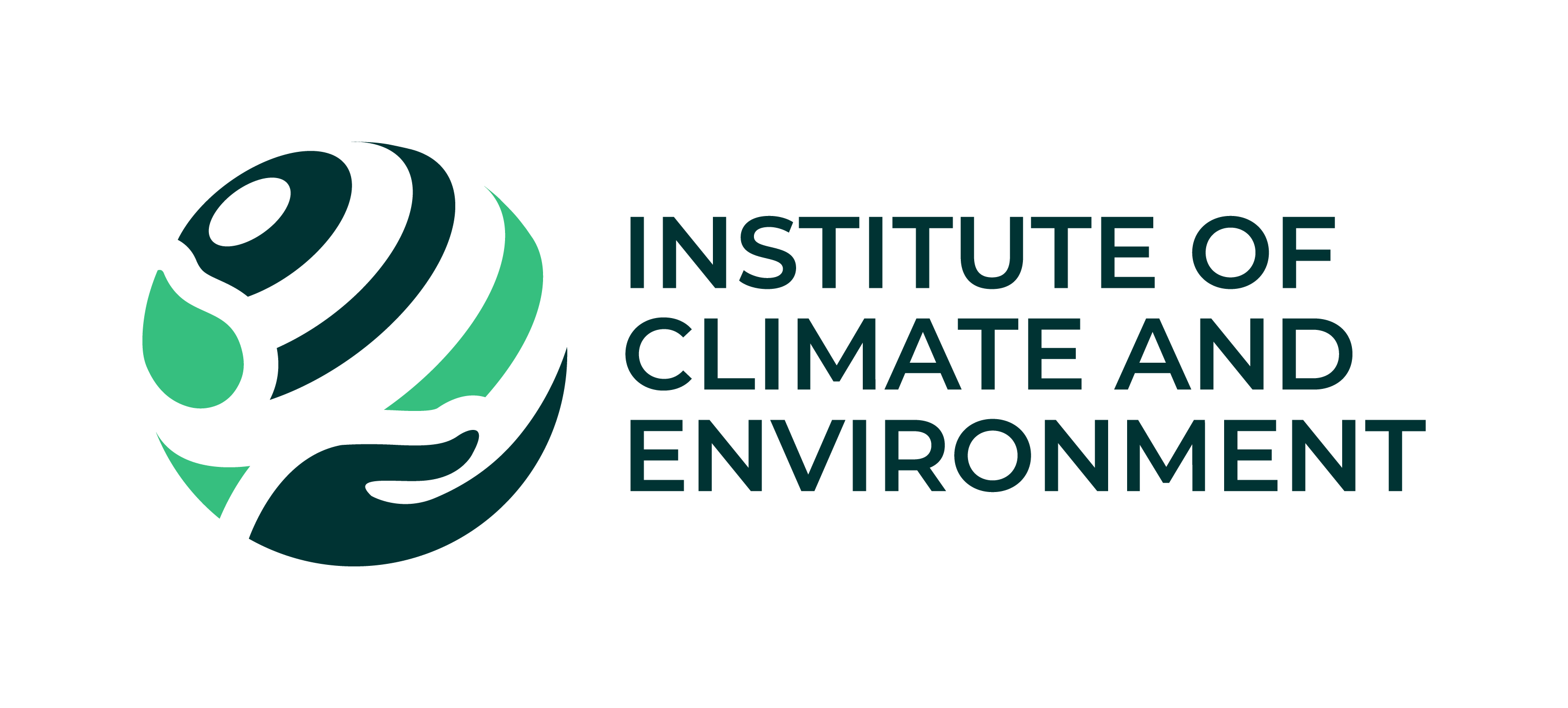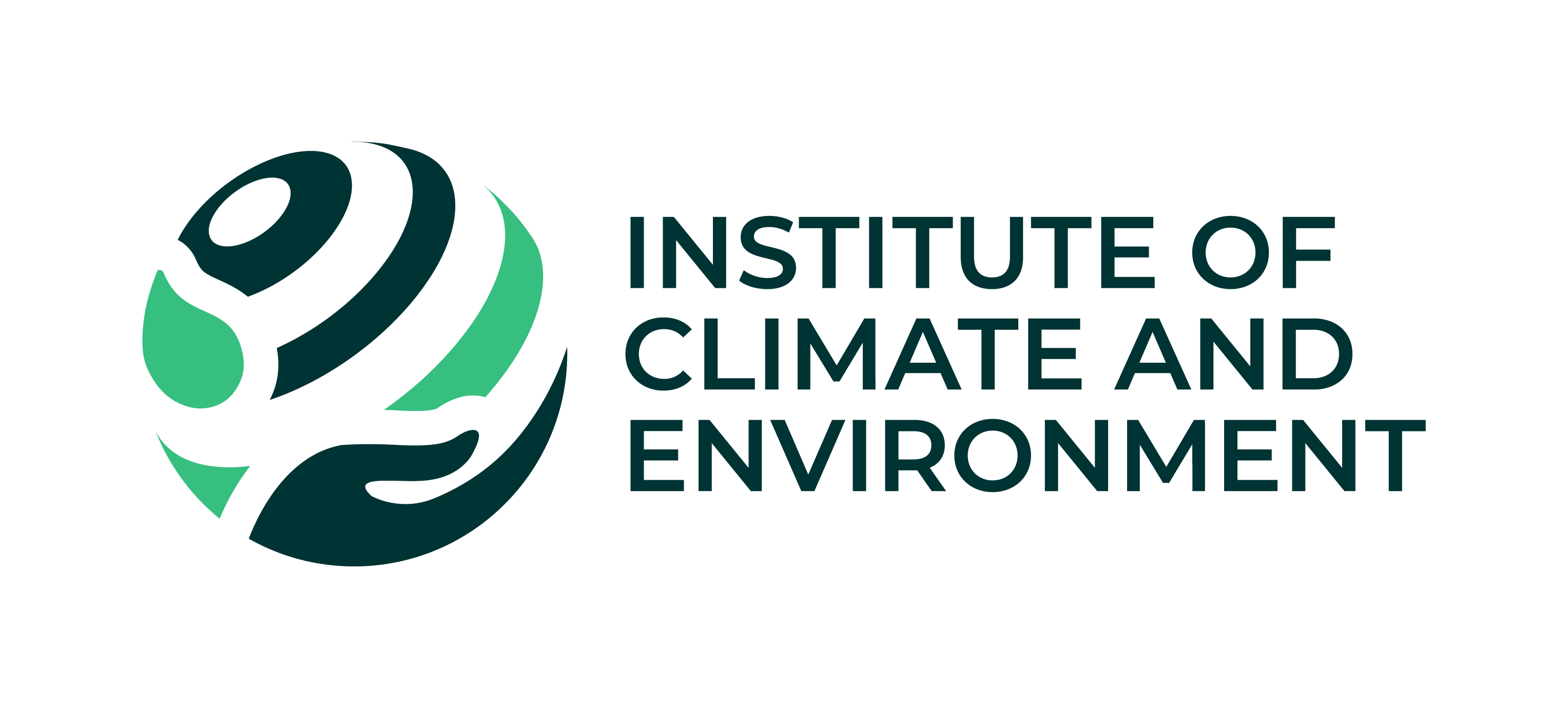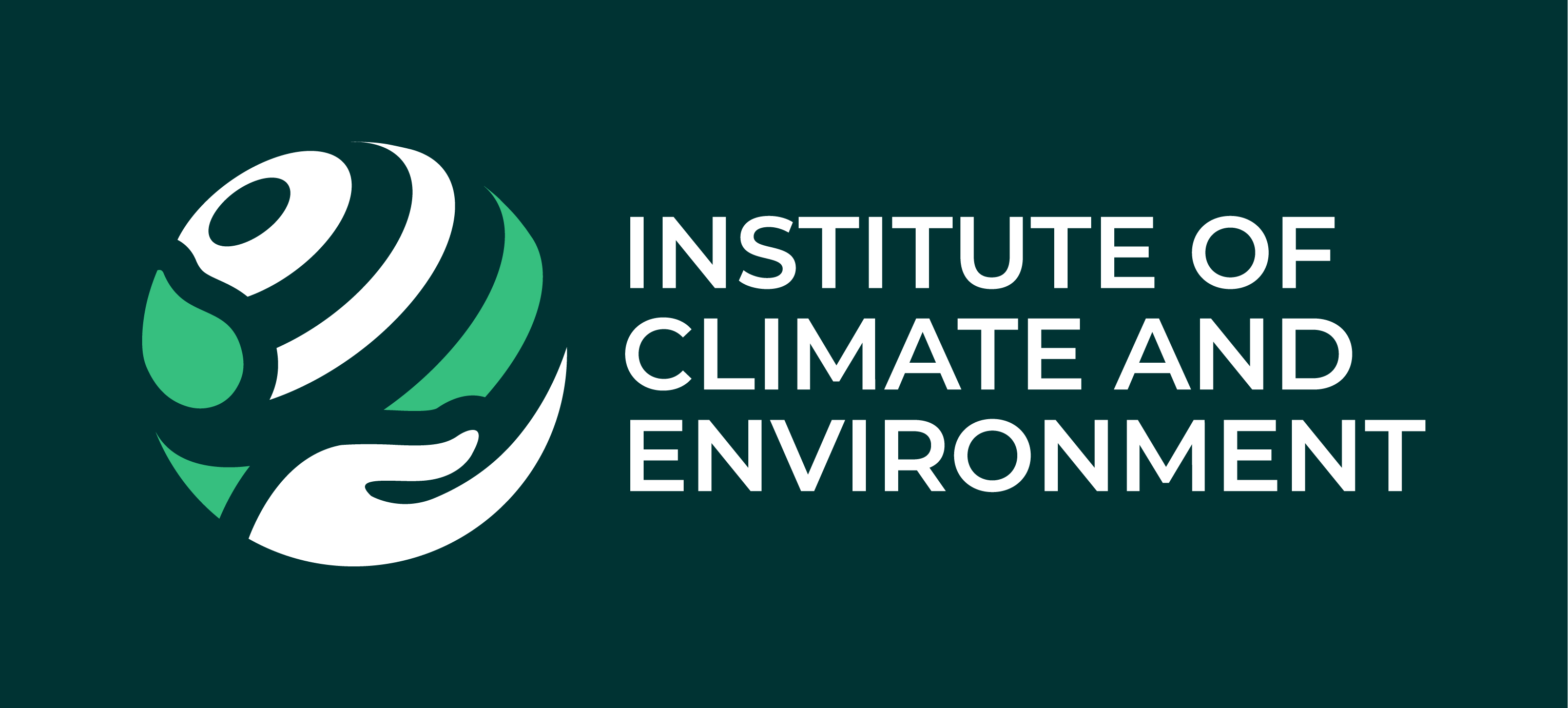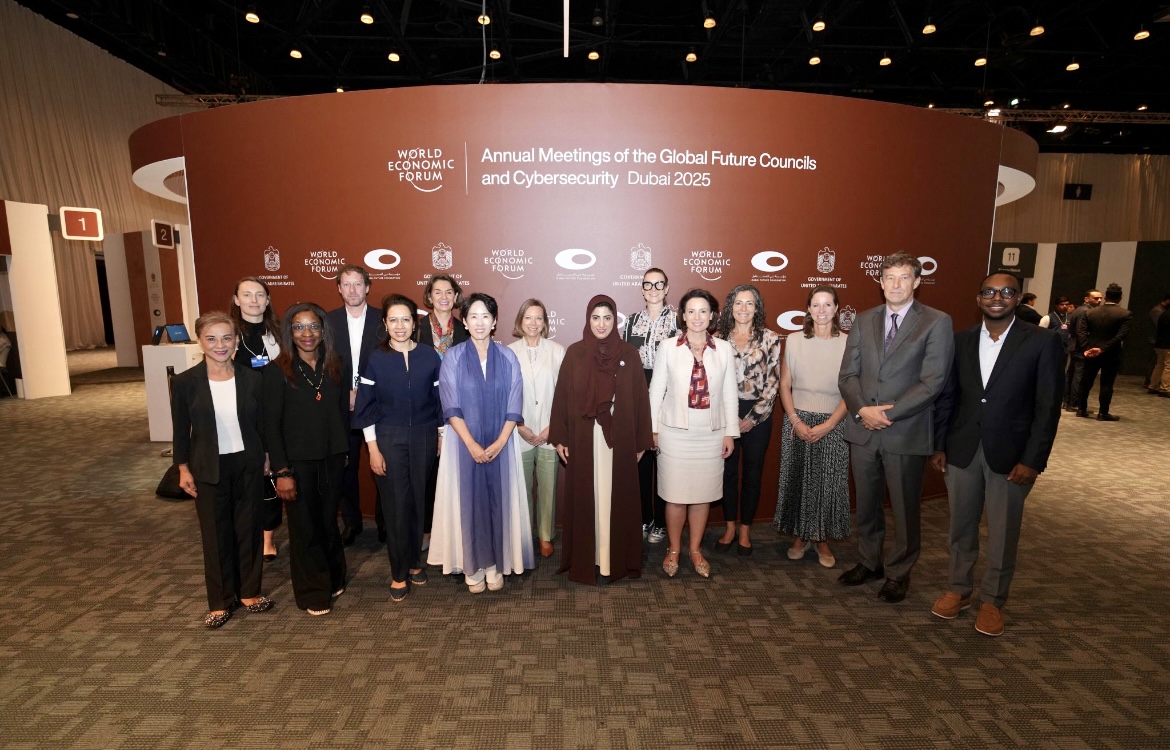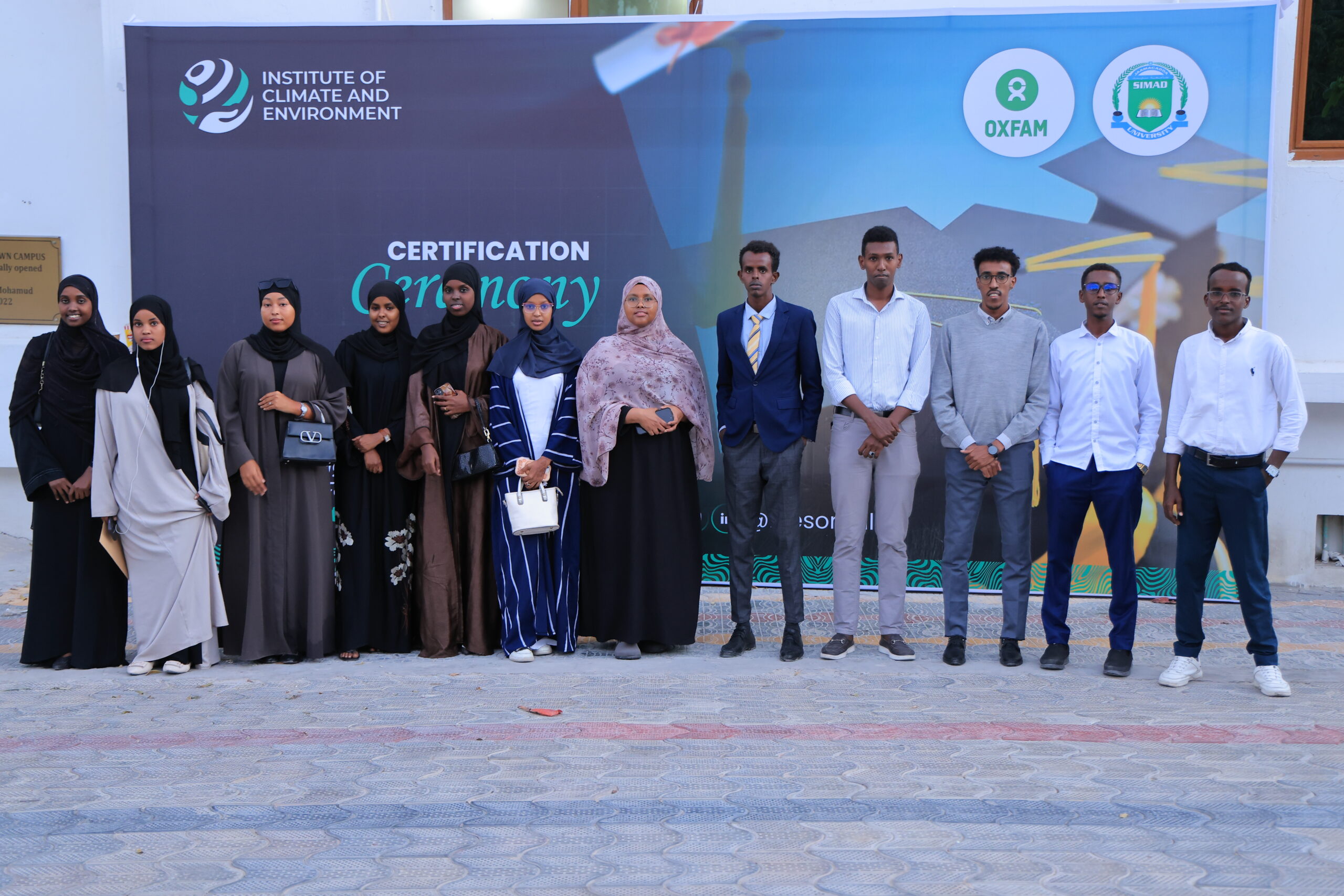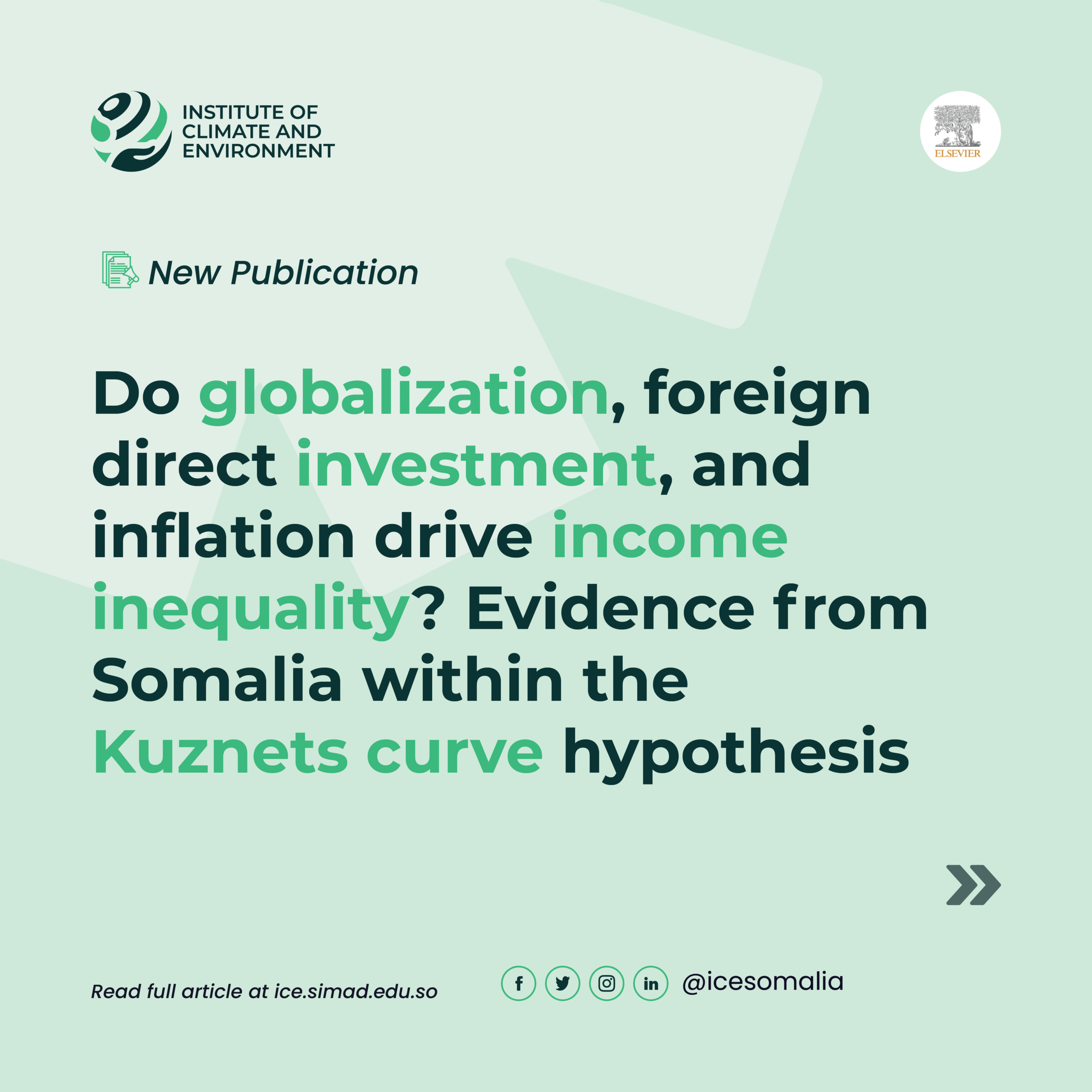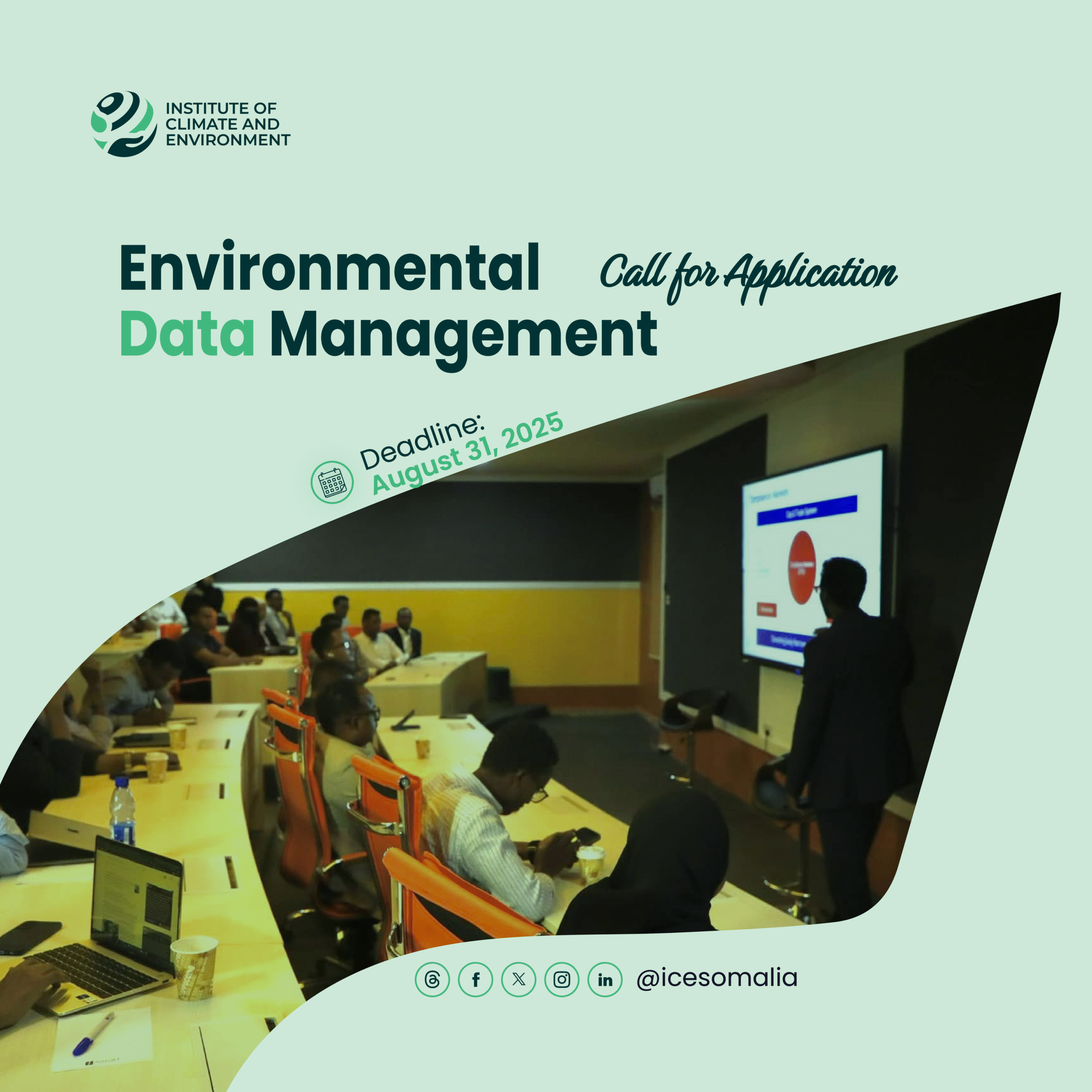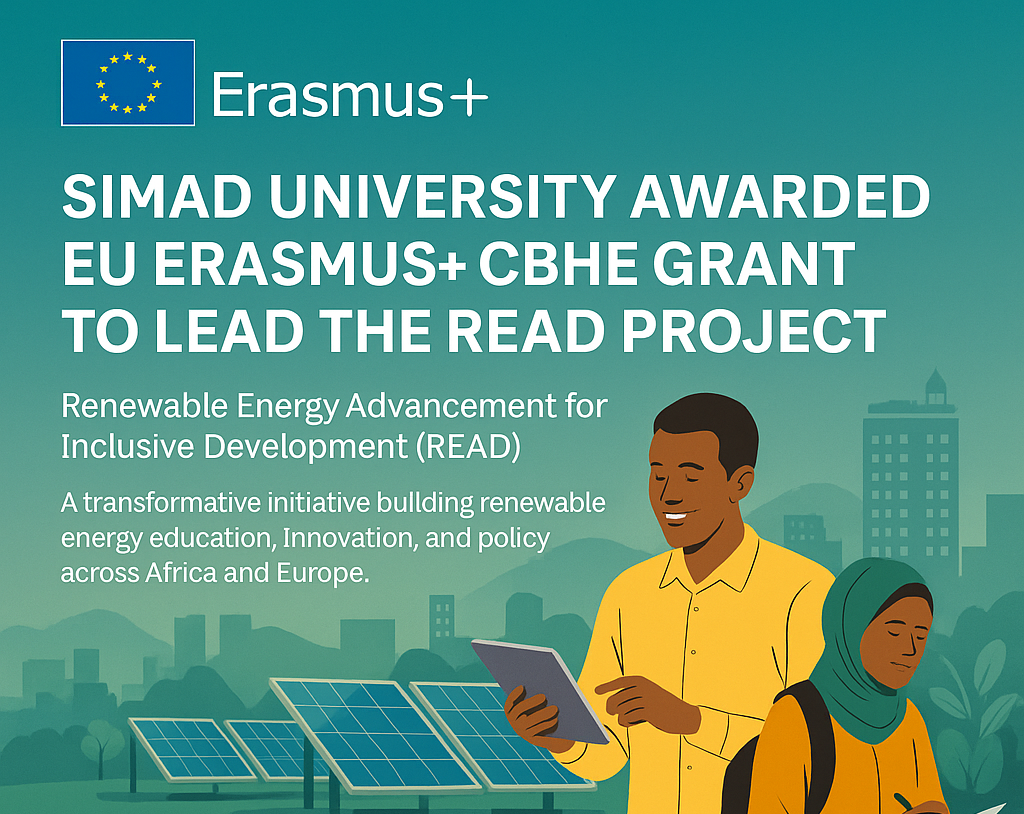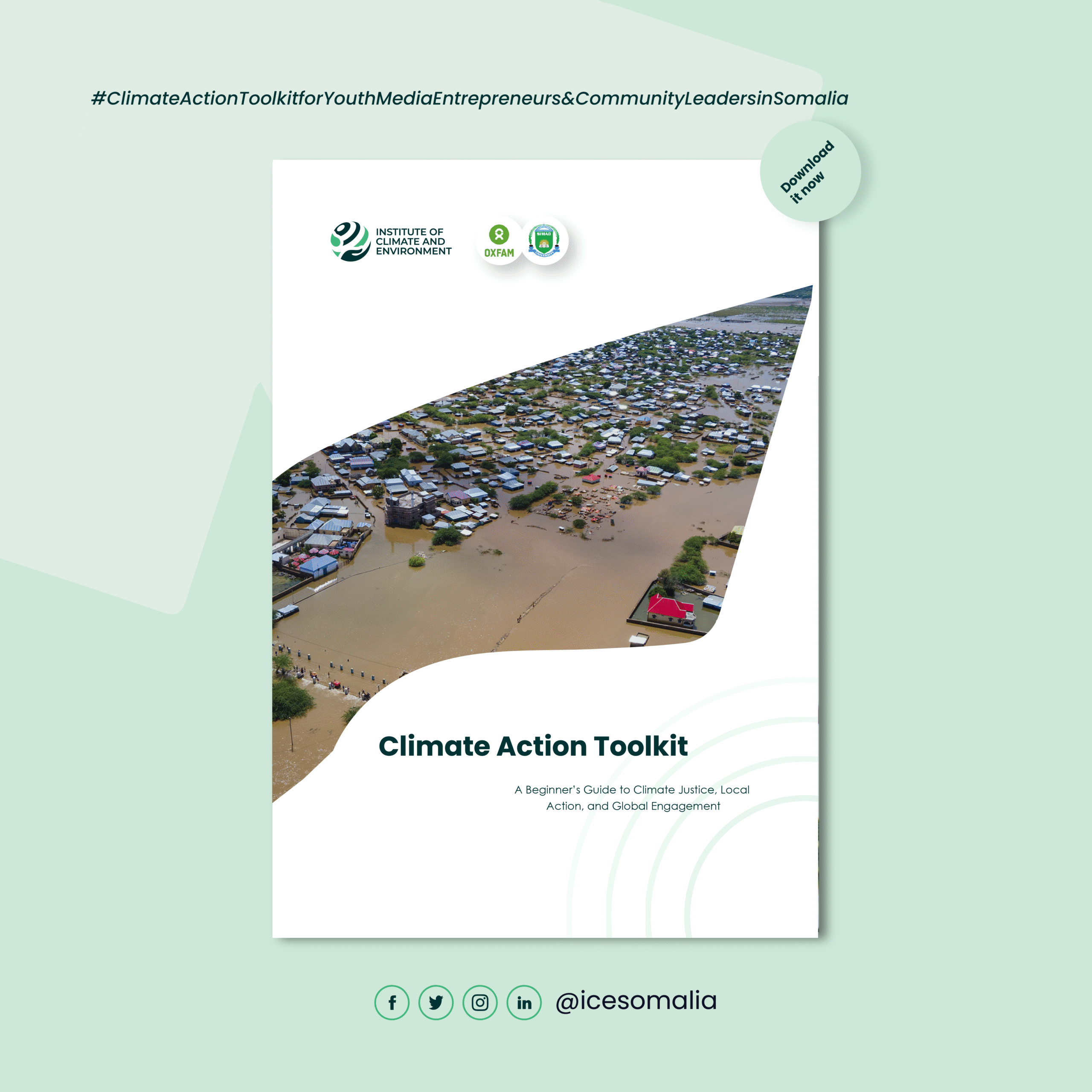ICE Institute at the World Economic Forum’s Global Future Councils 2025
Last week, the Global Future Council on Climate and Nature Governance convened in Dubai for its first in-person meeting of the 2025–2026 term, held during the World Economic Forum’s Annual Meeting of the Global Future Councils (AMGFC25). The summit brought together over 500 global experts from business, academia, government, and civil society to explore the [&hell
Certification Ceremony for Climate Justice Incubator II
On 28 August 2025, the Institute of Climate and Environment (ICE) at SIMAD University hosted a colorful certification ceremony to honor more than 80 young participants who successfully completed a two-month training on Climate Justice, Leadership, Advocacy, and Storytelling. The event brought together students, policymakers, civil society representatives, and partners
Green Champions: The Class of 2025
The Institute of Climate and Environment (ICE) at SIMAD University is delighted to announce the selection of a new cohort of 10 Green Champions for 2025. Chosen through an open and competitive application process, these ten young people represent diverse programs across SIMAD University — a true reflection of the creativity, innovation, and energy of our student [
ICE Institute Engages in Continental Dialogue at the Manenga Ndulo Conference 2025
The Manenga Ndulo Conference on Economic Development, hosted by the Southern African Institute for Policy and Research (SAIPAR), convened leading scholars, policymakers, and development practitioners in Lusaka, Zambia, from August 12–14, 2025. Held under the theme “Securing Africa’s Industrial and International Trade Situation Amidst Global Shifts,” the co
ICE Institute Achieves Observer Status with the UNCCD: A Milestone for Climate Leadership in Somalia
In a historic move for Somali academia and climate leadership, SIMAD University has been provisionally accredited as an observer to the United Nations Convention to Combat Desertification (UNCCD). This announcement, made official by the UNCCD Secretariat on August 5, 2025, marks a major step forward in Somalia’s engagement with global environmental governance and si
Do globalization, foreign direct investment, and inflation drive income inequality? Evidence from Somalia within the Kuznets curve hypothesis
Income inequality remains one of Somalia’s most pressing socio-economic challenges. A new study (1990–2020) investigates how globalization, foreign direct investment (FDI), inflation, and other structural factors shape inequality within the framework of the Kuznets curve hypothesis. Using advanced econometric methods—including ARDL bounds testing, Kernel-based R
Accelerating Sustainable Transformation in Sub-Saharan Africa: The Role of Clean Energy, Digitalization, FDI, and Industrialization
Balancing economic growth with environmental sustainability remains a defining challenge for Sub-Saharan Africa (SSA). A recent study investigates how clean energy, digitalization, foreign direct investment (FDI), and industrialization influence ecological outcomes across 38 SSA countries between 2001 and 2020. Using advanced econometric techniques, the research uncov
New Course Announcement: Environmental Data Management
The Environmental Data Management course is a new professional training program designed to equip students, researchers, and practitioners with the skills to collect, manage, analyze, and visualize environmental data for evidence-based decision-making. Leveraging ICE Institute’s strategic focus on capacity building and research excellence, this c
SIMAD University Wins EU Erasmus+ Grant to Lead Green Energy Education Across Africa
In a landmark achievement for higher education and climate action in Somalia, SIMAD University has been awarded a prestigious Erasmus+ Capacity Building in Higher Education (CBHE) grant from the European Union. The funding supports the launch of the READ Project – Renewable Energy Advancement for Inclusive Development – a tr
ICE Institute Launches Climate Action Toolkit for Somali Changemakers
In partnership with Oxfam, the Institute of Climate and Environment (ICE) at SIMAD University is proud to launch the Climate Action Toolkit for Youth, Media, Entrepreneurs & Community Leaders in Somalia. This beginner-friendly guide is a groundbreaking resource designed to raise awareness, build capacity, and activate climate action across Somali communities�
